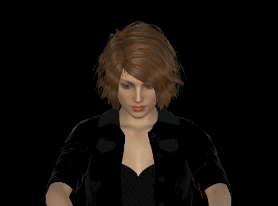"What is a Computer?" - The Invisible Power in Everyday Life
Welcome to the first article in our series exploring the fascinating world of computers. In this installment, we'll reveal how computers are everywhere in our daily lives, yet often go unnoticed. From the smartphones in our pockets to the 'smart' gadgets in our homes, we'll delve into how computers have evolved beyond traditional forms and become an essential part of modern living.
When we think of computers, images of desktops or laptops often come to mind. But in today's world, computers are much more than these traditional devices. They have seamlessly integrated into our daily lives, often in forms we don't immediately recognize.
Beyond the Desk
Originally, computers were seen as large, complex machines reserved for specialized tasks.

Now, they have evolved into an array of forms, many of which fit comfortably in our pockets. Your smartphone, for instance, is a perfect example of a modern computer. It does much more than just make calls; it's a powerful device capable of browsing the internet, playing games, managing schedules, and much more. In essence, the 'phone' part is just one application of this versatile, portable computer.
Computers in Disguise
It's not just smartphones. Today, computers are everywhere. They are in our watches, TVs, cars, home appliances, and even in children's toys. These devices, often referred to as 'smart' or 'connected' devices, use computer technology to perform a wide range of functions that make life more convenient, efficient, and enjoyable.
The Common Threads
So, what makes a device a computer? There are a few common threads that connect all these forms:
- Processing Power: At the heart of every computer, whether it's a desktop or a smartwatch, is a processor – a tiny but powerful chip that performs calculations and executes instructions.
- Memory and Storage: Computers have memory where they temporarily store data (like your upcoming appointments) and permanent storage for keeping everything from your photos to the operating system.
- Input and Output: They have ways to receive input (like typing on a keyboard, swiping on a screen, or speaking to a voice assistant) and deliver output (displaying on a screen, producing sound, etc.).
- Software: Computers run on software, programs that tell the computer what to do, whether it's browsing the web, managing your fitness data, or controlling the temperature in your home.
Empowering Our Lives
What truly sets computers apart today is their role in empowering our daily lives. They keep us connected, help us manage our tasks, entertain us, and even assist in keeping us healthy and safe. As technology continues to advance, the definition and capabilities of computers will keep expanding, further entwining them with our everyday experiences.
What's Next
As we've seen, computers are much more than just tools for work or play; they're an essential part of our daily lives, often operating discreetly to make modern life possible. In the next part of the series, we will focus on the processor – the brain of every computer, and uncover its vital role in the world of computing.














